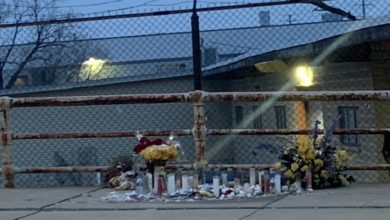On Feb. 24, the Chicago City Council passed a resolution calling on the federal government to end the blockade on Cuba. All 50 aldermen voted to oppose the blockade, adding that normalizing relations can benefit the economic conditions of both Cubans and Chicagoans.
The blockade, which has lasted 60 years, prevents Cuba from trading freely and has taken a toll on the Cuban economy to the tune of billions of dollars lost every year for decades. The U.S. government-created blockade prevents countries, corporations and private individuals from doing business in Cuba.
Resolution R2020-612 is the result of a two-year campaign led by more than 200 Chicagoans from different neighborhoods. The resolution ultimately became sponsored by seven aldermen. Many community activists, academics and people with familial or social ties to Cuba united to popularize and pass the resolution.
The resolution stated: “Businesses and institutions in Chicago have expressed a very strong interest in providing their products and services to Cuba, importing Cuban products and cooperating with Cuban institutions in the development of pharmaceuticals and medical devices as well as biomedical research and procedures.”
Marilyn McKenna, Education Coordinator at the Chicago Religious Leadership Network on Latin America, testified in favor of the resolution, writing: “Cuba has been at the forefront of biotechnology for several decades. Treatments Cuba has pioneered that are not available in the U.S. are: HEBERPROT-P for the treatment of diabetic foot ulcers. Peer-reviewed studies show relative amputation risk reduced by over 70% in diabetic foot ulcer patients. CIMAvax is a lung cancer treatment. Currently U.S. residents defy the embargo to travel to Cuba to receive this medicine.”
McKenna told Liberation News: “We are excited to have the city of Chicago support a policy that would be good for the city of Chicago as well as people in Cuba. … We can end the embargo and end the suffering because we [the U.S. government] imposed the embargo. It’s our responsibility to end it.”
The blockade began when the Cuban people, united under the leadership of Fidel Castro, overthrew the U.S. government-installed Batista dictatorship and rejected privatization. The Batista years saw severe exploitation of the Cuban people, for the benefit of capitalists in the United States. Cubans were working in brutal conditions on plantations and in other poverty wage jobs, while U.S. capitalists gained immense profits.
Dr. Lisa Brock, the Academic Director of the Arcus Center for Social Justice Leadership, as well as one of the supporters of the bill, told Liberation News: “The blockade has been horrible economic terrorism on the Cuban people. The majority of [Cuban] people supported the revolution, the U.S. claims it supports democracy. Well, when the majority of the people want a type of society, so that is democracy.”
The Cuban Revolution installed a socialist government. Since then, Cuba has enjoyed soaring literacy rates, increased lifespans, overall increases in quality of life and significantly reduced poverty levels. The education system since the Cuban Revolution is world renowned. Cuba has one of the highest percentage of doctors per capita in the world, and has deployed thousands of them throughout the world to combat COVID-19. Medical research in Cuba has led to the development of vaccines and cures, many that are not available in the United States due to the blockade.
Eunice Mina Escobar, National Co-Coordinator for Alliance For Global Justice, testified: “Despite more than 50 years of sanctions and economic blockade, the Cuban Revolution managed to continue to be a people’s centered government and to help the world during the COVID-19 pandemic. The outstanding effort by Cuban doctors, nurses and other health care professionals of the Henry Reeve contingent, to help the world during the COVID-19 pandemic and West African countries of Liberia, Sierra Leone and Guinea dealing with a deadly outbreak of Ebola which killed over 6,400 of their citizens, are unmeasurable.”
The Cuban government has immense support from its own people. Here in the United States, the blockade is popularly opposed by Americans. Despite this, the U.S. government continues the blockade, which is overwhelmingly seen as collective punishment of the Cuban people.
Dr. Felix Masud-Piloto, Professor Emeritus at DePaul University, told Liberation News: “The blockade has caused quite a bit of damage to the Cuban economy and the Cuban people. Thousands of people have died due to the blockade.”
Much like how Cuban vaccines are not available to people in the United States, the effect grows tenfold for the Cuban people. Basic medicine is blocked from the Cuban people due the U.S. pharmaceutical companies having patents and monopolies on life-saving medicine.
“The Cuban people and their trading partners around the world should be able to trade freely. The U.S. is able to trade with who they want to, how come an island like Cuba can’t do the same with other people around the world?” Brock commented.
The Trump administration did even more damage to the U.S.-Cuban relations, rescinding travel relations that were established during the Obama administration and even going so far as calling Cuba a state sponsor of terrorism.
In the official testimony, Masud-Piloto said: “During last year’s presidential campaign, Joe Biden promised to reverse the negative effects of U.S. relations with Cuba of the past four years and return to a policy based on mutual respect and economic benefit for both countries.”
On the same day the Chicago resolution passed, Joe Biden promised to continue the blockade despite the United Nations voting overwhelmingly to condemn the U.S. government policy.






